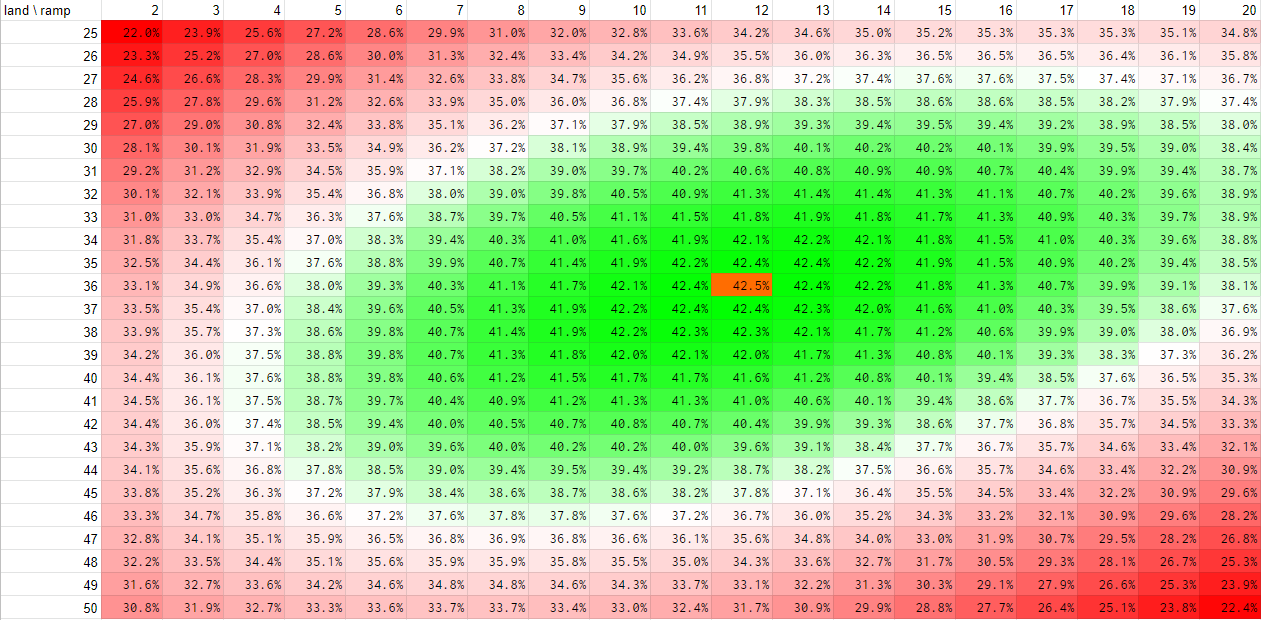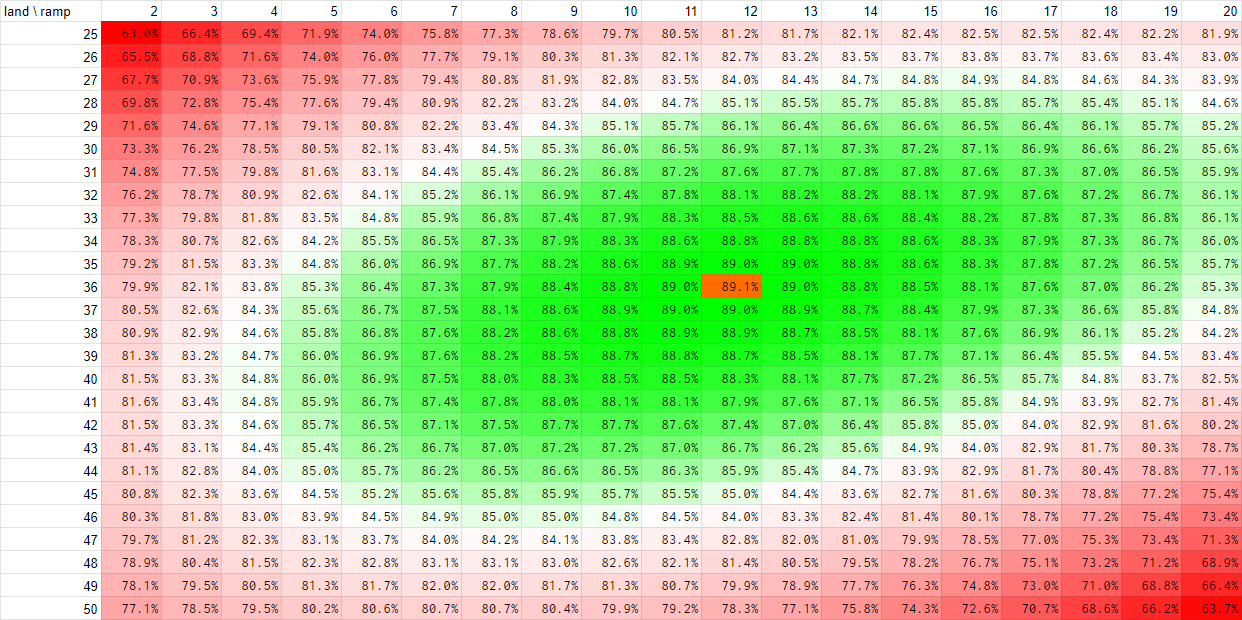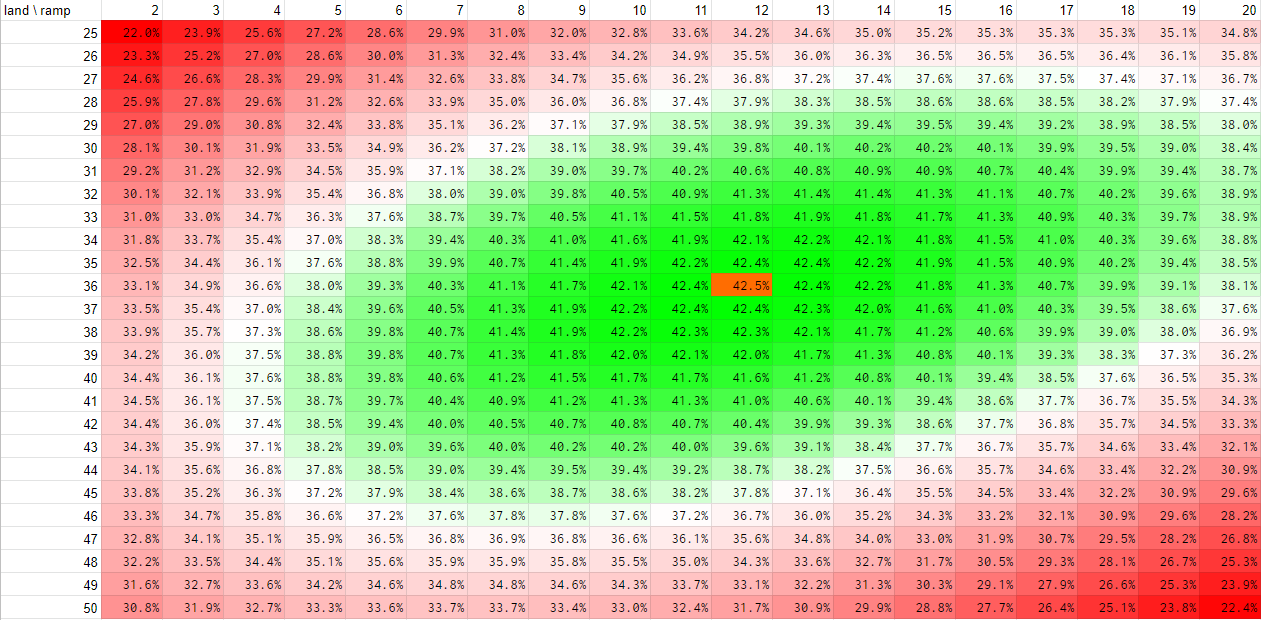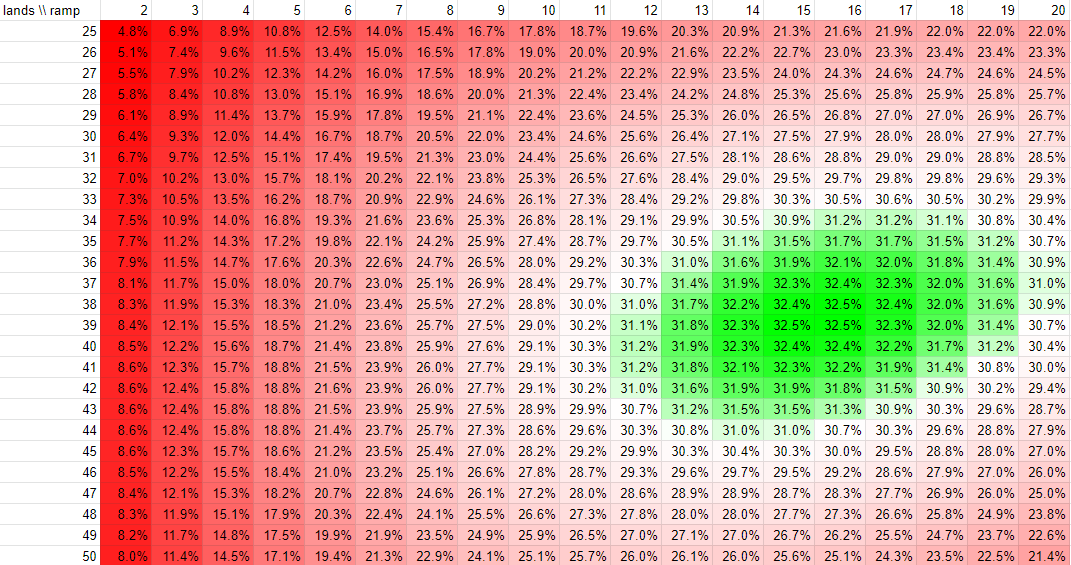this post was submitted on 08 Jul 2023
9 points (100.0% liked)
Commander
351 readers
1 users here now
Commander format discussion
Also called EDH or Elder Dragon Highlander, Commander is Magic's most popular format and all about picking your hero and building a deck around them. In this casual, multiplayer format, you choose a legendary creature to serve as your commander and build the rest of your 100 card deck around their color identity and unique abilities. Players are only allowed one of each card in their deck, with the exception of basic lands, but they can use cards from throughout Magic's history.
Commander combines the command zone, color identity, singleton deckbuilding, multiplayer strategies, and the entire MtG cardpool for one of the most exciting and fresh ways to play.
Read more at Commander's official website.
founded 2 years ago
MODERATORS
you are viewing a single comment's thread
view the rest of the comments
view the rest of the comments

Images:
No mulligans, general advice (first post):
Three mulligans, general advice (first post):
Accepting 4 land hands, general advice (first post):
4-mana commander (second post):
Wow that's a thorough analysis ! Thanks a lot. It does cover a blind spot of the article, which is that it is based on what people are doing instead of what they should do. I will experiment with your model !
15 cheap ramp spells feels like a tall order if you don't run green though, especially if you don't have the budget for mana crypt/mana vault/moxes. EDIT : there are more mana rocks than I previously thought, even on a budget. See this scryfall search.
Do you have an idea of how fast the output of your model changes when the average cmc of the deck changes ?
Crap, I wrote a long comment and accidentally closed the tab. Well.
In a nutshell: 15 ramp spells is doable. There are already 15 colourless rocks to fulfill this order.
So the analysis above doesn't take average mana value into account. It simply looks at the (subjectively) acceptable starting hands and goes from there. You can indirectly manipulate the assumed average mana value by modifying which hands to accept and which to mulligan.
I have experimented with a variable MV setup... But the results are pretty wild. I'll return to you if I ever get around to doing some more of that. (Yeah, that's going to be tonight lol.)